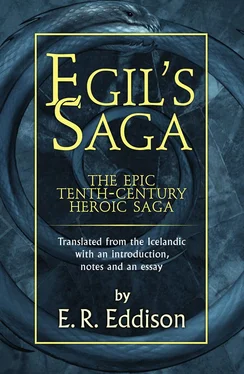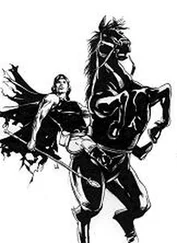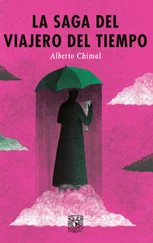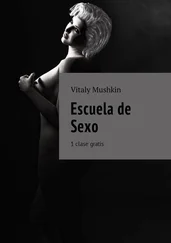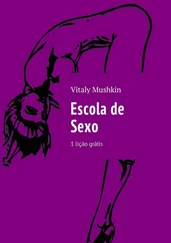Christianity was ‘brought into the law’ in the year A.D. 1000 It is clear from the accounts given in the sagas (and this is confirmed by more general considerations referred to below) that the change of faith was primarily and in substance a political proceeding based on considerations of expediency rather than on any religious movement among the people. As soon as it became plain, at the famous meeting of the Althing in the year 1000, that religious controversy was about to split the commonwealth from top to bottom, men turned to seek an expedient that should avoid the evil of two laws in the land. Snorri the Priest was the main actor here, and by his persuasion both sides were brought to lay the matter in the hands of Thorgeir the Priest of Lightwater, who was then Speaker of the Law. Thorgeir’s award made Christianity the law, and forbade (on pain of outlawry) heathen rites and the exposure of children: but the old worship, though forbidden in public, was to be allowed in private. It is characteristic that this statesmanlike compromise, which brought Christianity into the law and preserved the cohesion of the state, was dictated by a heathen. Henceforth, though the letter of the law was Christian, the pagan spirit lived on. Its persistence, many generations after the ‘change of faith’, is seen in the persistence of the old ways of life. Christian bishops practised polygamy and rode on raiding expeditions in the Sturlung days as freely as the great men of old. Hallfred the Troublous-skald wore his new faith so lightly that his readiest threat was to cast it off and be a heathen again if the King would not listen to his poem. But perhaps the most striking evidence of the abiding life of the pagan spirit is the impartiality and lack of Christian colouring in the sagas themselves; for in no country has Christianity been a tolerant religion. In Egla , which was probably written down in final form about the middle of the thirteenth century, it is hard to find a phrase or turn of speech which betrays the point of view of a Christian telling a story of old heathen times, or which is out of tune with the mind and temper of Egil’s own generation and the heroic age.
The two essential facts about the old faith which stand out clearly amid much that is doubtful and obscure are, first, its fatalism, and secondly, the relation of fellowship between men and the Gods.
Fatalism is in the deep foundations of the old Northern mythology. Beyond death, beyond the joys of Valhalla, looms the shadow of Ragnarok—of that Dies Iræ , when the Wolf shall be loosed and Midgard’s Worm shall come, and heaven and earth and the blessed Gods themselves shall pass away in catastrophic ruin. The terrors of that Day are foretold in one of the grandest of the Eddic poems, the Völospá , from which, to show the spirit of doom and desolation that informs the ultimate things in this creed, I will quote some verses, beginning with the crowing of the cocks in the three worlds to usher in the “One fight more—the best and the last”:
Sate on the howe there and strake harp-string
The Grim Wife’s herdsman, glad Eggthér.
Crow’d mid the cocks in Cackle-spinney
A fair-red cock who Fialàr hight.
Crowéd in Asgarth Comb-o’-Gold,
Fighters to wake for the Father of Hosts.
But another croweth to Earth from under:
A soot-red cock from the courts of Hell.—
Garm bayeth ghastful at Gnipa’s cave :
The fast must be loos’d and the Wolf fare free .
Things forgot know I, yea, and far things to come:
The Twilight of the Gods; the grave of Them that conquer’d.
Brother shall fight with brother, and to bane be turnéd:
Sisters’ offspring shall spill the bands of kin.
Hard ’tis with the world: of whoredom mickle:
An axe age, a sword age: shields shall be cloven;
A wind age, a wolf age, ere the world’s age founder.
Mimir’s children are astir: the Judge up standeth,
Even with the roar of the Horn of Roaring.
High bloweth Heimdall: the Horn is aloft;
And Odin muttereth with Mimir’s head.
Shuddereth Yggdrasill’s Ash on high,
The old Tree groaneth, and the Titans are unchain’d.—
Garm bayeth ghastful at Gnipa’s cave :
The fast must be loos’d and the Wolf fare free .
What aileth the Aesir? What aileth the Elves?
Thundereth all Jotunheim: the Aesir go to Thing.
The Dwarf-kind wail afore their doors of stone,
The rock-walls’ warders.— Wist ye yet , or what ?
Hrym driveth from the east, holdeth shield on high.
Jormungand twisteth in Titan fury.
The Worm heaveth up the seas: screameth the Eagle:
Slitteth corpses Neb-pale: Nail-fare saileth.
A Keel fareth from the west: come must Muspell’s
Legions aboard of her, and Loki steereth.
Fare the evil wights with the Wolf all;
Amidst them is Byleist’s brother in their faring.
Surt from the south cometh, switch-bane in hand;
Blazeth the sun from the sword of the Death-God:
The granite cliffs ciash, and the great gulfs sunder;
The Hell-dead walk the way of Hell, and the Heavens are riven.
It is against this gloomy background of fatalism and foredoom that the men and women of the sagas play out their lives. This, like a thick black shadow of darkness, shadows their every word and deed, yet leaves them proud, and practical, and unafraid. Count Hermann Keyserling has said, with profound insight, that the belief in predestination is always grandiose in effect where its disciples possess proud souls. And he speaks of the fatalism of Islam in words that might have been spoken of the Northmen: “The fatalism of the Moslem, like that of the original Calvinist, and in contradiction to that of the Russian, is the expression not of weakness but of strength. He neither trembles before the terrible God in whom he believes, nor does he hope for His particular benevolence, nor does he suffer himself to be driven at will by fate: he stands there, proud and inwardly free, opposite to the Superior Power, facing eternity with the same equanimity as he faces death”. *Such a mind we see everywhere in the sagas: in the terrible Skarphedinn when, before the burning of Bergthorsknoll, he chooses the hazard of defending the house rather than fight in the open in disobedience to his aged father: “I may well humour my father in this, by being burnt indoors along with him, for I am not afraid of my death” (Nj. 127); in Kiartan, sending back his company and riding with but two followers on his last ride southward towards Laxriverdale (Ld. 48); and, in our own saga, in old Kveldulf watching the fate he from the first foreboded step by step draw nearer to his son.
Of the sense of fellowship with the Gods I have already quoted instances. The nobility of this attitude of mind is well caught by Stevenson in one of his little febles, of the priest, the virtuous person, and the old rover with his axe: “At last one came running, and told them all was lost: that the powers of darkness had besieged the Heavenly Mansions, that Odin was to die, and evil triumph.
“‘I have been grossly deceived’, cried the virtuous person.
“‘All is lost now’, said the priest.
“‘I wonder if it is too late to make it up with the devil?’ said the virtuous person.
“‘O, I hope not’, said the priest. ‘And at any rate we can but try.—But what are you doing with your axe?’ says he to the rover.
“‘I am off to die with Odin’, said the rover.” *
This proud pagan spirit of fatalism and fellowship with, not subservience to, the ultimate Power, is implicit throughout the saga literature. It is, in my judgement, the deep underlying rock on which the greatness of that literature, as an expression of much that is finest and noblest in the human spirit, is founded and built.
Читать дальше
